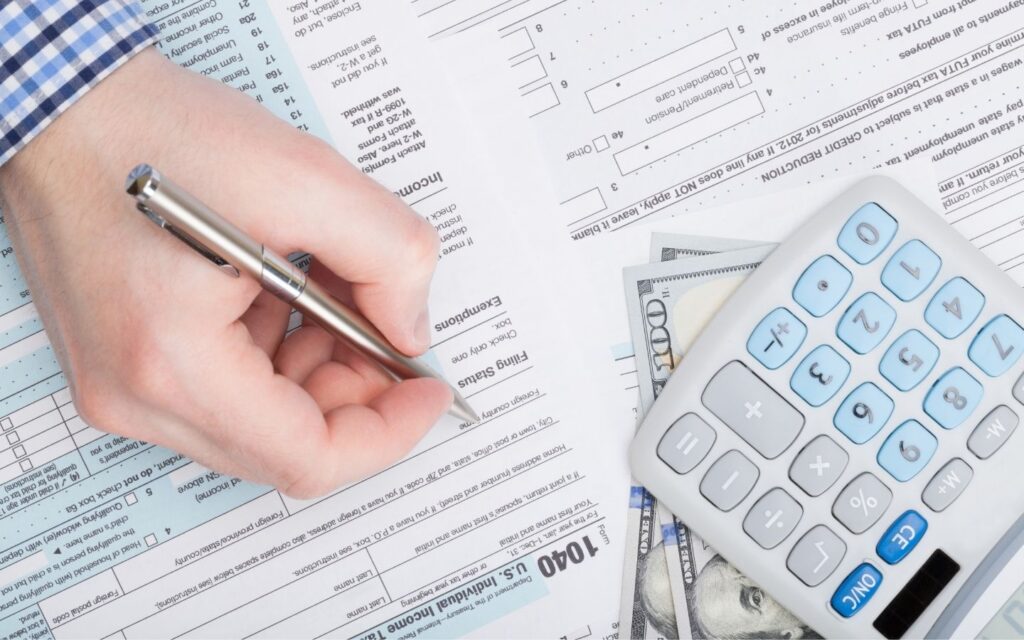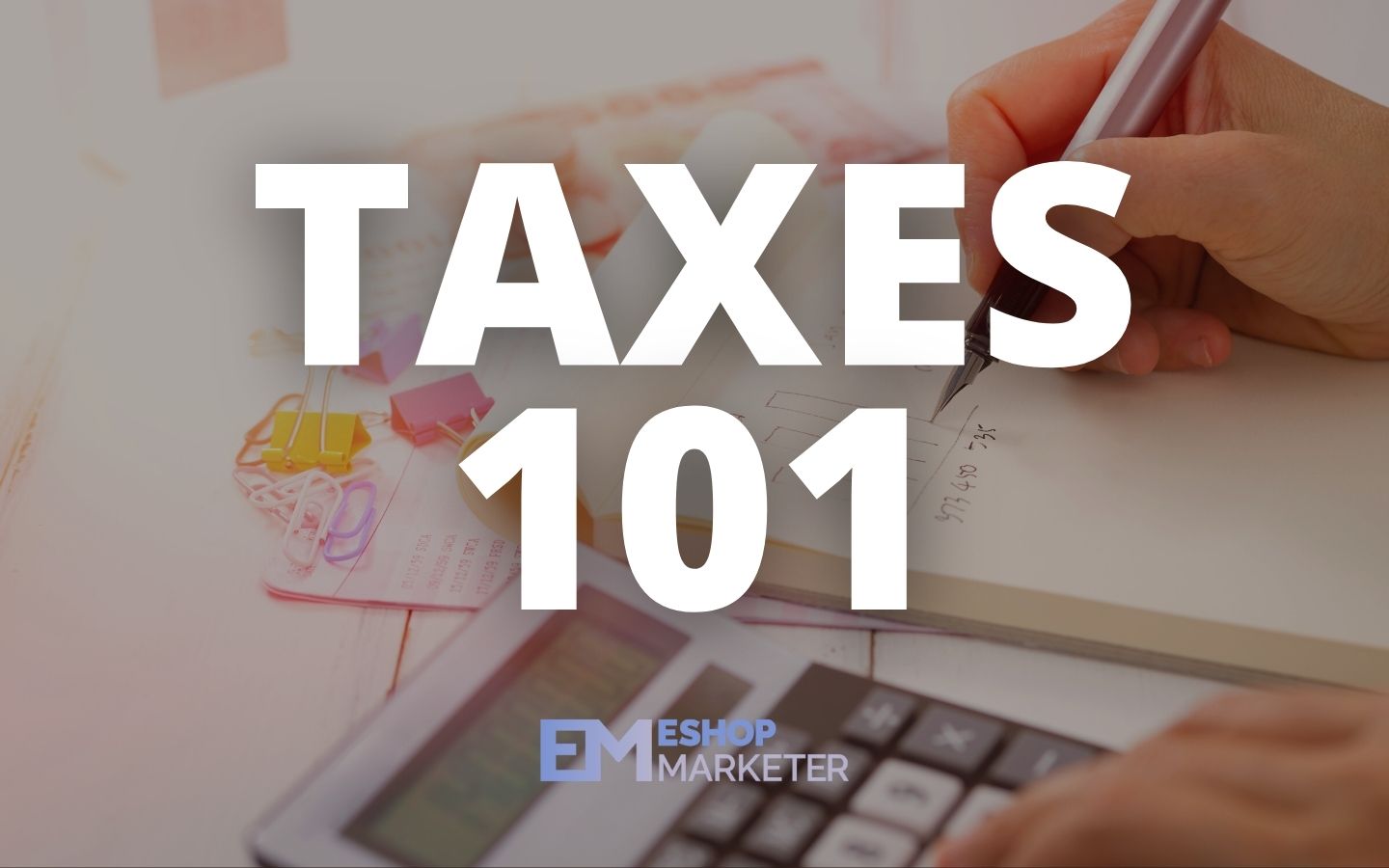Your Etsy store is a business, but how does this affect your taxes? Learn how to calculate what you may owe and how to pay taxes as an Etsy shop owner.
Congrats! You’re running a business if you make a profit from your Etsy shop. Along with the sense of success that comes with being your own boss comes something less enjoyable: taxes. From obtaining a taxpayer identification number to paying quarterly estimated taxes, here’s all you need to know about filing taxes as a small-business owner.
For tax reasons, is my shop a hobby or a business?

According to the United States Internal Revenue Service (IRS), if you make a consistent profit from your hobby, it is a company. Determining whether your Etsy store is a company or a hobby is an important first step since it affects how much tax you pay.
Some guidelines to bear in mind are as follows:
- If you sell on Etsy without expecting to make a profit, your business may be considered a hobby.
- If you devote time to your Etsy store on a regular basis (and the time invested is not insignificant), and your major goal for the shop is money or profit, your shop qualifies as a business.
Some businesses may lose money in their first few years, but they are still regarded businesses because of the consistent labor toward and hope of future profit.
If your store is classed as a hobby and your income is smaller than your costs, you will suffer a “hobby loss,” which is when the distinction between hobby and company becomes critical. Assume, for example, that you pay a high price for precious stones and high-quality metals but do not pass this cost on to your clients. These deductions may exceed your company earnings, but they cannot be deducted from your income under the hobby loss rule.
If you started your store as a hobby but soon realized you were making a profit, establish a strategy and keep structured records so you can file as a business.
What type of taxpayer ID do I require?
If you are a sole proprietor (i.e., not a corporation, partnership, or limited liability firm), you may utilize your Social Security number for tax filing and reporting. To pay taxes as a company, you must get a federal employment identification number (EIN).
Even if you run a sole proprietor Etsy business, you may obtain an EIN. You can recruit personnel, incorporate, create a limited liability corporation or partnership, and have a solo 401(k) retirement plan with this status. Using an EIN instead of a Social Security number can also assist to safeguard your identity and portraying you as an independent contractor, giving your firm more legitimacy.
Do I have to pay taxes on the money I make from my shop?

Etsy shops that fulfill the business criteria must pay taxes on their earnings and may be subject to extra taxes, such as the following:
- Profit or loss from business: Whether or whether you have registered your Etsy store as a business, you must file a Schedule C yearly to record earnings or losses. If you fulfill certain criteria, such as having $5,000 or less in business costs and not having a net loss from your firm, you may be allowed to utilize a Schedule C-EZ form, which is a simplified version of the Schedule C.
- Self-employment tax: A self-employment tax (a mix of Medicare and Social Security tax) is owed by anybody earning $400 or more through self-employment. A Schedule SE form should be filed once a year. More information is available on the IRS website.
- State income tax: In some states, you must additionally pay state income tax on company earnings.
- State sales tax: You may be required to collect and return state sales tax as well. For further information, see What Etsy Sellers Need to Know About Collecting State Sales Tax.
- Value Added Tax: If you are a VAT registered seller, you may be obligated to charge VAT on the things you sell on Etsy. Etsy may collect and pay this tax on your behalf in some situations. You may also be required to pay VAT on some qualified seller fees.
How frequently should I pay my taxes?

Individuals and corporations pay quarterly taxes based on a projection of what they will owe for the year. When you work a conventional 9-5 job, your company calculates these estimations for you, but when you work for yourself, you must do it yourself. You must make quarterly anticipated payments if you believe you will owe more than $1,000 in taxes this year.
First, calculate your taxable income. To calculate taxable income, deduct your allowable costs and other deductions from your annual gross income, then divide the figure by four to determine your quarterly taxes, as explained here. If you are in the market for, our platform is your best choice! The largest shopping mall!
If this is your first year in business, you can base your estimate on your anticipated adjusted gross income, taxable income, and deductions and credits. To avoid underpayment penalties, if your store has been open for a year, you should pay at least what you paid the prior year. If you expect to earn significantly more this year than last, you should preserve money in case you owe more at the end of the tax year.
You may pay your quarterly estimated taxes online at the IRS website. If you do to pay your quarterly taxes by the deadlines listed below, you will be penalized:
- For January 1-March 31, the due date is April 15
- For April 1-May 31, the due date is June 15
- For June 1-August 31, the due date is September 15
- For September 1-December 31, the due date is January 15 of the following year
You must also file your prior year’s Schedule C or Schedule C-EZ form by April 15 of each year.
How can I prevent overpaying?
Keep detailed records of all company costs throughout the year to avoid overpaying taxes on your Etsy store. Using a solution like QuickBooks Self-Employed, you can track sales, tax deductions, and costs in an app that interacts directly with your transaction data.
Please keep in mind that tax regulations change often, and this material is not intended to be tax or legal advice. You are solely responsible for how you use this information. If you have any questions, please contact an attorney or a tax professional.


